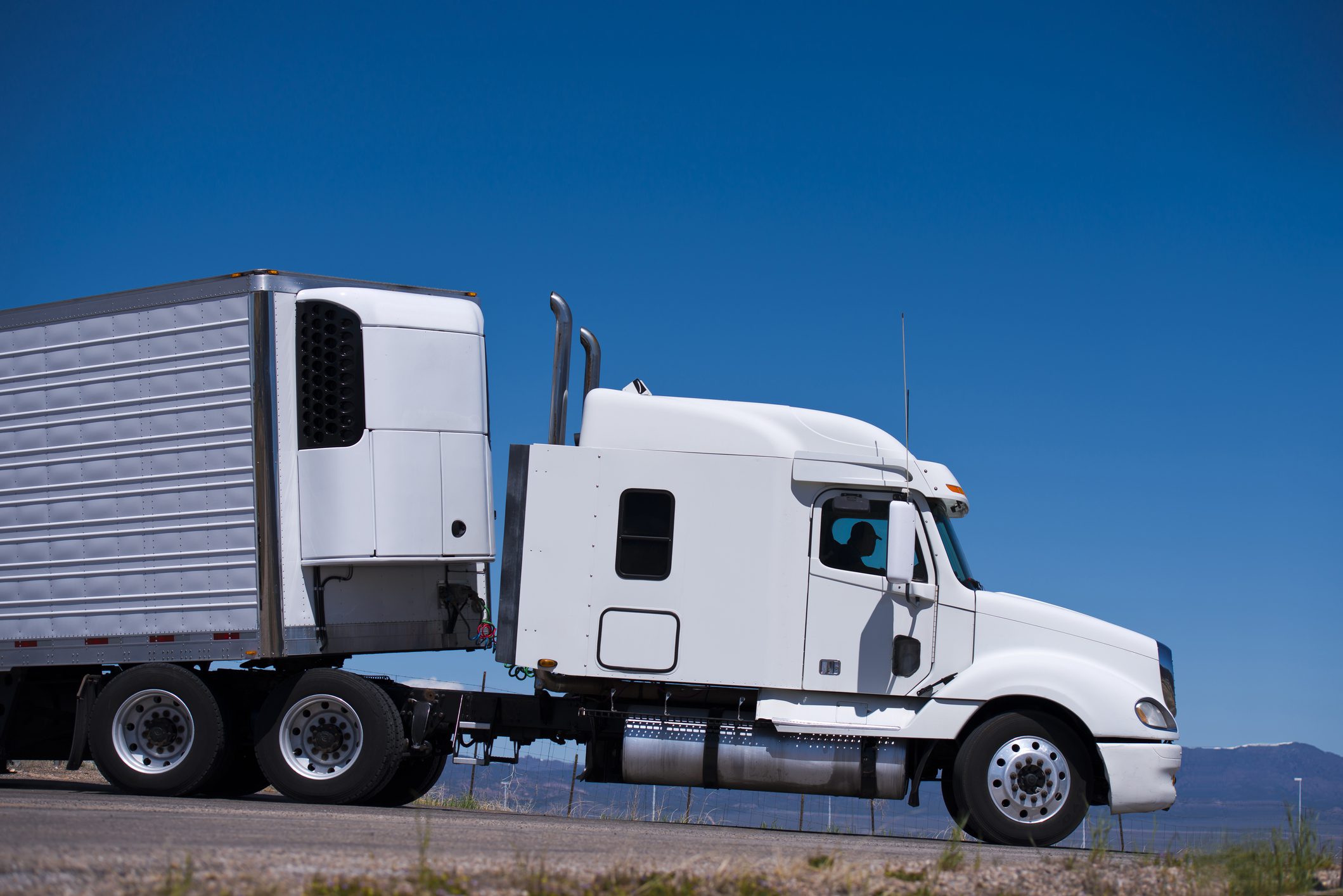Leading Advancements in Transport Refrigeration: Enhancing Performance and Security
The landscape of transport refrigeration is going through substantial change, driven by developments intended at enhancing both effectiveness and safety and security. As these innovations continue to advance, it is important to explore their ramifications on functional practices and regulatory compliance, motivating a more detailed examination of just how they improve the future of transportation refrigeration.
Smart Temperature Monitoring Systems
In the realm of transport refrigeration, wise temperature level monitoring systems have become an important technology for ensuring the integrity of temperature-sensitive goods. These sophisticated systems take advantage of Internet of Things (IoT) innovation to give real-time data on temperature level changes, allowing drivers to preserve optimal conditions throughout the supply chain. By continuously tracking the temperature of refrigerated containers and vehicles, companies can swiftly identify deviations that might endanger item top quality.

In addition, wise surveillance systems typically incorporate automated notifies and alerts, allowing stakeholders to react without delay to any type of possible issues. This positive strategy not just reduces the threat of spoilage however additionally enhances compliance with regulative standards regulating food safety and security and pharmaceutical transport.
The integration of information analytics within these systems additionally assists in anticipating maintenance, helping drivers to predict potential equipment failures prior to they take place. This capability minimizes downtime and maximizes operational effectiveness, inevitably leading to cost financial savings.
Eco-Friendly Refrigerants
Smart temperature tracking systems play an essential duty in maintaining item quality, but the performance of transport refrigeration likewise depends upon the option of cooling agents used. As ecological concerns increase, the change towards green refrigerants has come to be vital. Typical refrigerants, such as hydrofluorocarbons (HFCs), are well-known for their high Worldwide Warming Potential (GWP), adding dramatically to environment adjustment. In contrast, emerging options like hydrocarbon-based cooling agents and hydrofluoroolefins (HFOs) present lower GWP choices, supplying both efficiency and sustainability.
These environmentally friendly refrigerants not only lessen ecological effect however likewise line up with worldwide guidelines intended at eliminating dangerous materials. Their fostering can cause boosted power effectiveness, inevitably lowering operating expense for transportation refrigeration systems. The usage of all-natural refrigerants, such as ammonia and carbon dioxide, has acquired traction due to their superb thermodynamic buildings and reduced environmental footprint.
Purchasing green refrigerants is not merely a governing conformity step; it stands for a critical decision that enhances brand name track record and fosters consumer commitment. thermo king truck refrigeration units. By prioritizing lasting techniques, business can contribute to a greener future while ensuring the honesty of moved items
Advanced Insulation Products
Using sophisticated insulation materials is critical for enhancing transport refrigeration systems, as they substantially enhance power efficiency and preserve regular temperature control. Traditional insulation techniques often fall brief in avoiding thermal transfer, bring about enhanced power intake and varying temperature levels within refrigerated compartments.
Arising products such as vacuum protected panels (VIPs) and aerogels offer exceptional thermal resistance, permitting thinner profiles without jeopardizing efficiency. VIPs, for example, utilize a vacuum cleaner layer to decrease conductive and convective warmth transfer, making them suitable for space-constrained applications. Aerogels, recognized for their lightweight webpage and porous framework, provide phenomenal insulation while considerably minimizing total system weight.
In addition, incorporating phase modification materials (PCMs) right into insulation systems can better stabilize temperatures during transit. These materials take in and release thermal energy, successfully buffering versus outside temperature level variants.
The assimilation of these innovative insulation products not only decreases the functional prices related to power intake yet additionally expands the life span of temperature-sensitive items. As the transportation refrigeration sector remains to progress, the fostering of ingenious insulation innovations will be critical in improving both efficiency and security in refrigerated transport.
Automated Path Optimization
The effectiveness of transport refrigeration systems is significantly boosted through automated route optimization, which leverages real-time data and sophisticated algorithms to determine the most effective paths for delivery. By assessing numerous elements such as traffic patterns, weather problems, and shipment windows, these systems can dramatically minimize travel time and gas usage.
Automated route optimization reduces human mistake and subjective decision-making, which can result in inefficiencies. This modern technology makes it possible for fleet managers to allocate sources better, making sure that refrigerated items preserve their called for temperature level throughout the journey. By enhancing routes, firms can also boost customer satisfaction with prompt shipments.
Moreover, automated systems can adapt to unforeseen scenarios, such as roadway closures or unexpected website traffic spikes, enabling for vibrant rerouting. visit our website This flexibility not just protects the stability of temperature-sensitive items but likewise adds to general functional efficiency.
Carrying out automated route optimization can lead to significant cost financial savings while reducing the carbon footprint related to transportation. As companies significantly prioritize sustainability, this development attracts attention as a vital part in modern transport refrigeration, straightening operational goals with ecological responsibility. Eventually, automated course optimization stands for a significant development in the mission for efficiency and safety and security in transport refrigeration.

Real-Time Data Analytics
Automated course optimization substantially take advantage of the integration of real-time information analytics, which offers crucial understandings into the performance of transportation refrigeration systems. By utilizing real-time information, transport drivers can monitor temperature variations and devices efficiency, making sure that perishable items are maintained within called for parameters throughout transportation. This proactive strategy not only boosts the quality of the moved products yet also minimizes the risk of perishing and loss.

Along with enhancing performance, real-time analytics boosts security by making sure compliance with regulatory criteria for temperature control. This not only shields public health and wellness but also fortifies a business's track record - refrigerated transportation thermo king. As the transport refrigeration industry progresses, the integration of real-time information analytics emerges as a keystone for driving advancement, sustainability, and functional quality
Verdict
To conclude, the improvements in transport refrigeration considerably improve both efficiency and security within the industry. Smart temperature surveillance systems and real-time data analytics give important oversight, while eco-friendly refrigerants and progressed insulation materials add to sustainability and power efficiency. Additionally, automated course optimization algorithms not just reduce travel time however additionally reduce ecological influence. Jointly, these developments represent a critical evolution in transport refrigeration, making certain conformity with regulatory standards and promoting a greener future.
The landscape of transportation refrigeration is undertaking significant change, driven by developments aimed at improving both effectiveness and security.Smart temperature monitoring systems play an important function in preserving item top quality, yet the performance of transportation refrigeration additionally pivots on the option of refrigerants utilized. Their adoption can lead to improved energy efficiency, ultimately decreasing operating costs for transportation you can try this out refrigeration systems. Ultimately, automated route optimization stands for a substantial improvement in the mission for efficiency and safety in transport refrigeration.
In verdict, the innovations in transportation refrigeration substantially improve both efficiency and safety within the industry.
Comments on “Refrigerated Transportation Thermo King: Maintaining Product Fresh in Transit”